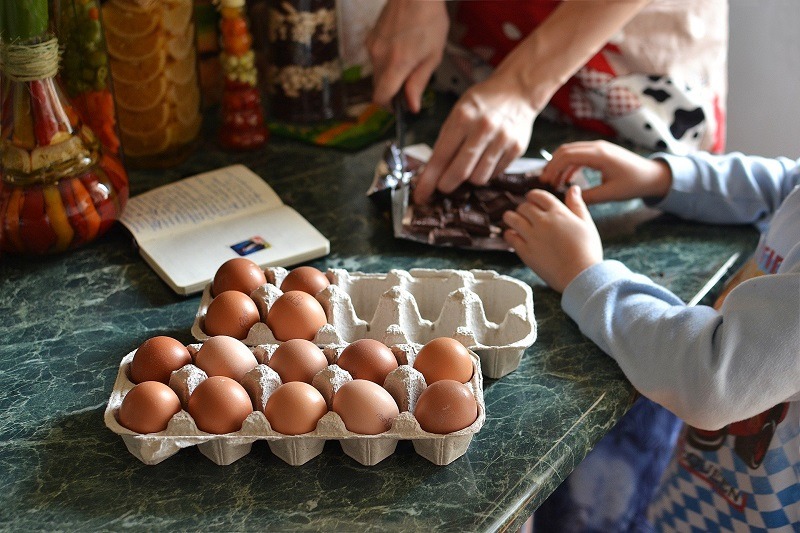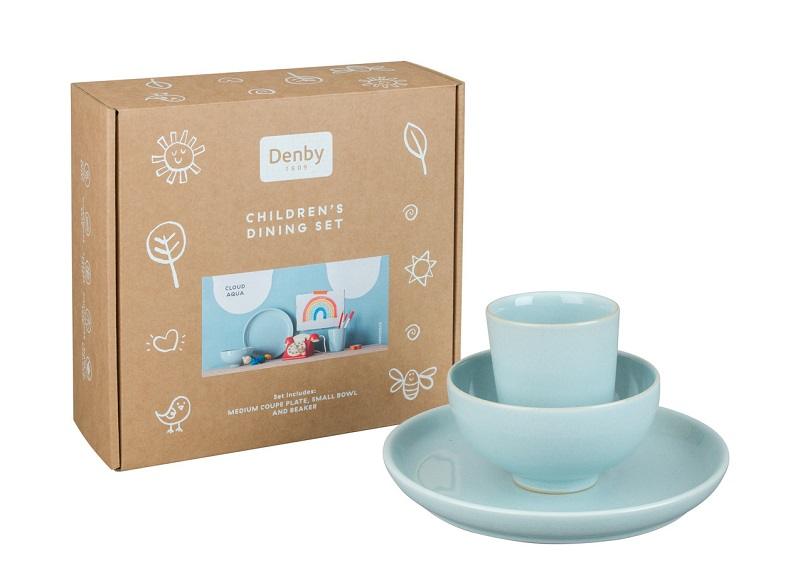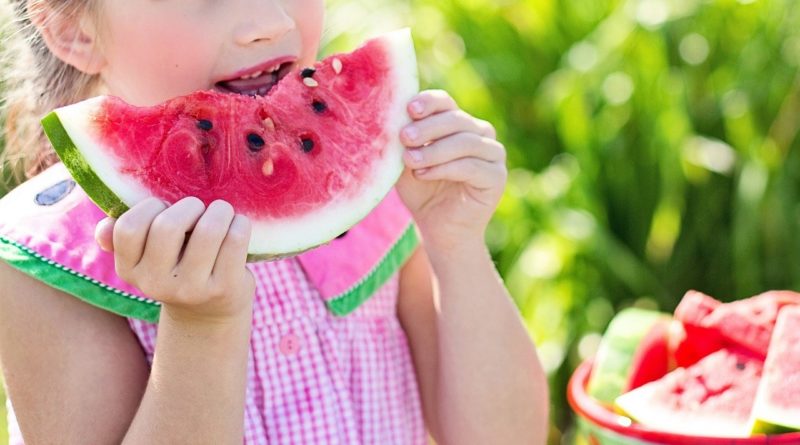5 Ways to Help your Children Develop a Positive Relationship with Food
When you have kids, every meal can feel like a battle. Encouraging your little one to eat what’s in front of them often seems like an impossible task, so you might be tempted to give up. But extreme pickiness may be a sign of something more serious, as fussy eating is sometimes caused by a child’s emotional cup being too full (The Guardian). Plus, a recent study has found that children who are picky eaters often fail to shake off this habit as they mature (Harvard Health Publishing).
To keep picky eating at bay, you may be looking for ways to help your child develop a healthy relationship with food. Having a balanced diet is vital for our little ones, as it protects both their physical and mental health. So, below I’ll share five tips you can try to help your child choose nutritious options and make mealtimes a breeze.
Make comfort food nutritious
To encourage your child to eat nutritiously, it’s important to teach them that healthy food doesn’t have to be boring. Instead of forcing them to polish off a plate of boiled vegetables, you could make your meals both tasty and nutritious by pushing the boat out! There are so many different ways to make their favourite dishes more nutritious, including:
• Mixing carrots with mashed potato to give them a boost of vitamin A.
• Making your own tomato-based sauces and filling them with vegetables, such as carrots, aubergine, and onion, before blending.
• Adding vegetables to a lasagne, such as butternut squash, carrot, and aubergine.
But remember that balance is part of every good diet. Sometimes they’ll want comfort food without the healthy additions, just like adults do — and that’s okay! A treat once in a while won’t undermine your efforts, especially if it’s well-deserved.
Get your little ones involved in cooking

Don’t just tell them about the food that they’re eating, show them how it’s made! Get them involved in the cooking process to give them experience in food preparation, and teach them a little bit about each ingredient. Not only will they learn about balanced and nutritious diets, but it will give them a sense of pride and accomplishment.
This is also a good opportunity to find out what your child likes and dislikes, as they have a more detailed understanding of the ingredients. For example, when your child says that they hate spaghetti bolognese, they may just be talking about the onions rather than the whole dish. Work together to figure out your shared likes and dislikes, and base future meals on nutrient-rich foods that you both love.
Avoid blame and shame
Kids can be very sensitive when it comes to criticism, especially regarding food. Try not to become frustrated with them when they tell you that they hate something. After all, everyone has foods that they can’t stand, so it makes sense that kids will too! Instead, focus on the nutritious dishes that they like, and always try to incorporate new ingredients.
If you’re struggling to get them to try new foods, don’t bribe them. As tempting as it is, this could establish an unhealthy pattern in the long term. Encourage them to try the food, but don’t force them to eat it, as this will make them more wary of new foods in the future. For picky eaters, start off by incorporating very small portions of new foods, to give your little one a taste. If they enjoy it, you can start using it more in the future.
Make mealtimes fun
Although we see our mealtimes as a chance to sit back and enjoy some delicious food, a lot of children see this time as interrupting their play. If you have a child who’s always itching to get down from the table, try making mealtimes more fun. You could do this by taking your meal away from the table and turning it into a picnic (or an indoor picnic on rainy days). Or you could play make believe and pretend to be a waiter for your little one in a fancy restaurant (and hope they don’t have any complaints for the chef!).
For older children, get them looking forward to mealtimes by letting them invite a friend for tea once a week. Make sure to keep them engaged by chatting with them and asking them about their day. After all, mealtimes aren’t just about the food — they’re a great way to get some family bonding time in too.
Present your food in style

Help your kids enjoy their food by presenting it in style. Don’t be afraid to get creative with the layout — you might find that you enjoy it just as much as they do! Use broccoli as trees and dinosaur-shaped chicken bites to create a Jurassic Park themed plate, or create a face with veg and add some spaghetti ‘hair’. For fruit snacks, use a cookie cutter to turn them into a fun shape, like a star or heart.
Presentation isn’t just about the food itself — what it’s served on is an important factor too. A great idea is to give your kids their own top quality dining set. Not only will good quality crockery make your little one feel special, but it makes it easier to figure out the portion sizes that you should be giving them. This is important, since a study by the Infant & Toddler Forum found 49% of children’s meals to be outside the recommended portion size range.
With the tips above and a little bit of patience, your little one could be on their way to developing a positive relationship with food.
To help parents make everyday meals fun for children and present kids’ food in style, M&D will soon be running a competition for a chance to win the stunning set pictured above. Watch this space!







Super tips! I find getting everyone involved in meal preparation helps positive attitudes towards food.
my daughters love helping and when they do they eat better too.
This is such an important topic! An excellent set of tips. Thank you.
some really good suggestions thank you
Great tips thank you! I have four children and one is very picky! Though I was too, as a child!
My kids love being involved in cooking!
Be mindful of the example you show
Really useful advice
I totally agree that getting children involved in cooking makes a difference. I’ve always been a picky eater – I really don’t know how my mum coped with me.
I’ve always been determined to ensure that my kids weren’t like me so we have cooked together many times. One of my big issues is if I don’t know what’s in my food so I always make sure the kids see the food before it’s cooked and if possible they even see how it’s grown. They’ve got a little patch of ground and they grow veggies so they can see that there is nothing weird about their food.
Great advice thank you!
Excellent advice all new mums should read and digest
Some really great tips here thank you so much it’s really appreciated
Very handy tips, I do often struggle knowing what to feed my little ones.
One of my kids is really picky and the other eats practically anything ! This is one of the hardest challenges ever
Thanks for this article it’s so interesting, and very useful excellent advice, my two really love helping me cook and do eat more this way too
Great useful tips
This was helpful especially as I have 3 very picky girls
My son is fussy so it definitely helps when he is involved in making meals as it encourages him to try new things x
I’m always trying to tell my partner to stop shouting at the kids at the dinner table and stop forcing them to clear their plates when they say they are full. Fortunately my kids still love eating, especially their greens but I do agree strongly that mealtimes should be made fun and relaxing
I have the same issue, but to be fair she will try everything and loves olives, carrots and fruit. so I am not too worried but these tips are great.
My daughter doesn’t have the best relationship with food, so I do get her to cook with me as often as I can, so she can see the ingrediants that go in her food and learn about portion sizes.
Useful comments, I am lucky mine will eat most things
i try to get him involved in cooking his food his way he seems to eat better
interesting read thank you
Great tips here, I have a picky eater so this will be helpful. Thanks 😊
As someone who has had an eating disorder, these tips are so important.
Interesting read. My 13 year old son has severe learning difficulties, we’ve always had issues with food and he has a limited diet. Fortunately he likes fruit so we’ve adapted our desserts to be largely fruit based so at least he has some of his 5 a day, he even tried a red grape recently & decided he loves them after years of refusal, you take your wins when you can with him!
This is perfectly said. It’s so important to engage children early on in nutrition for their future selves, when their minds are packed full of much more interesting things than sitting down to eat with family.